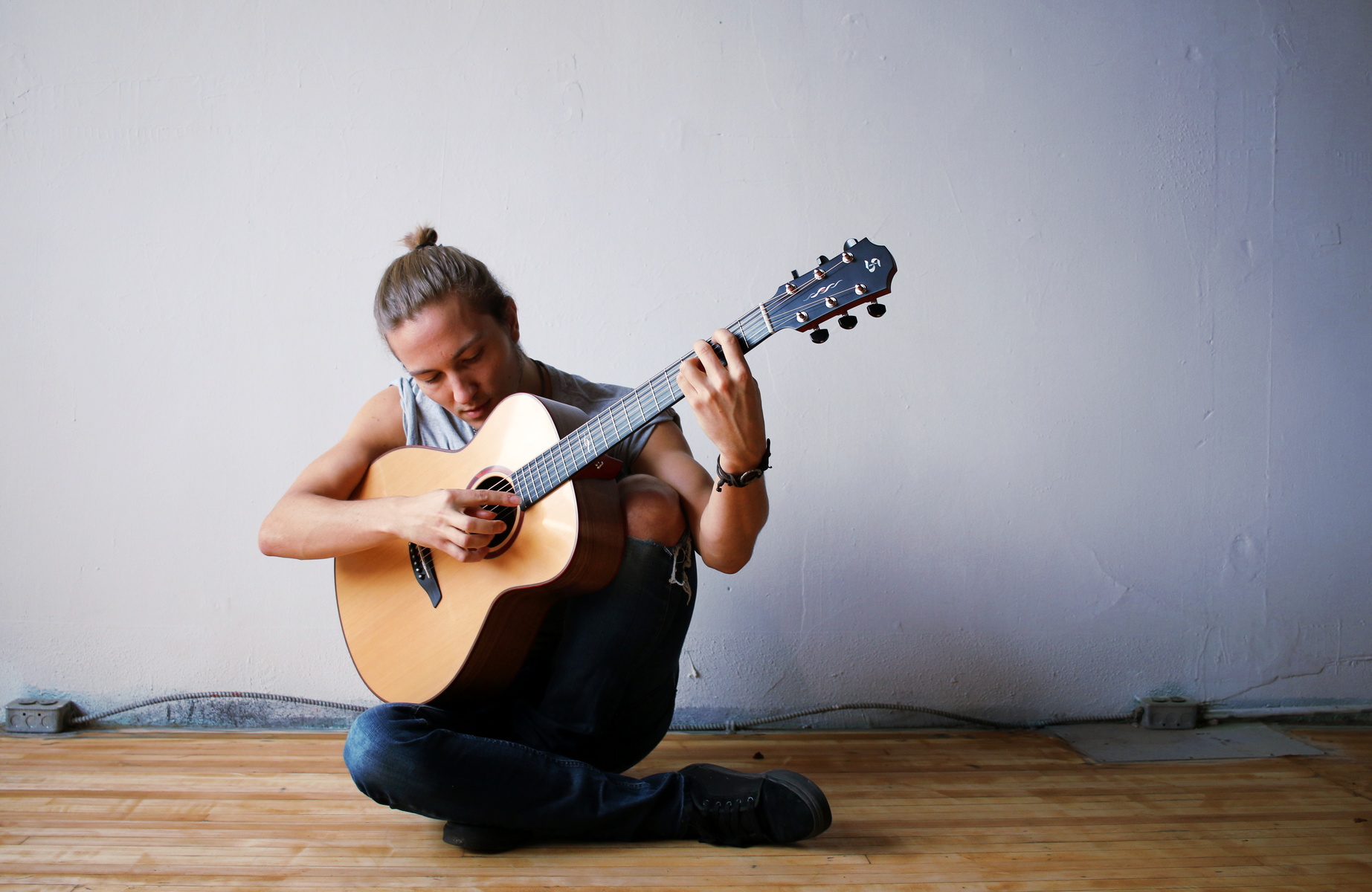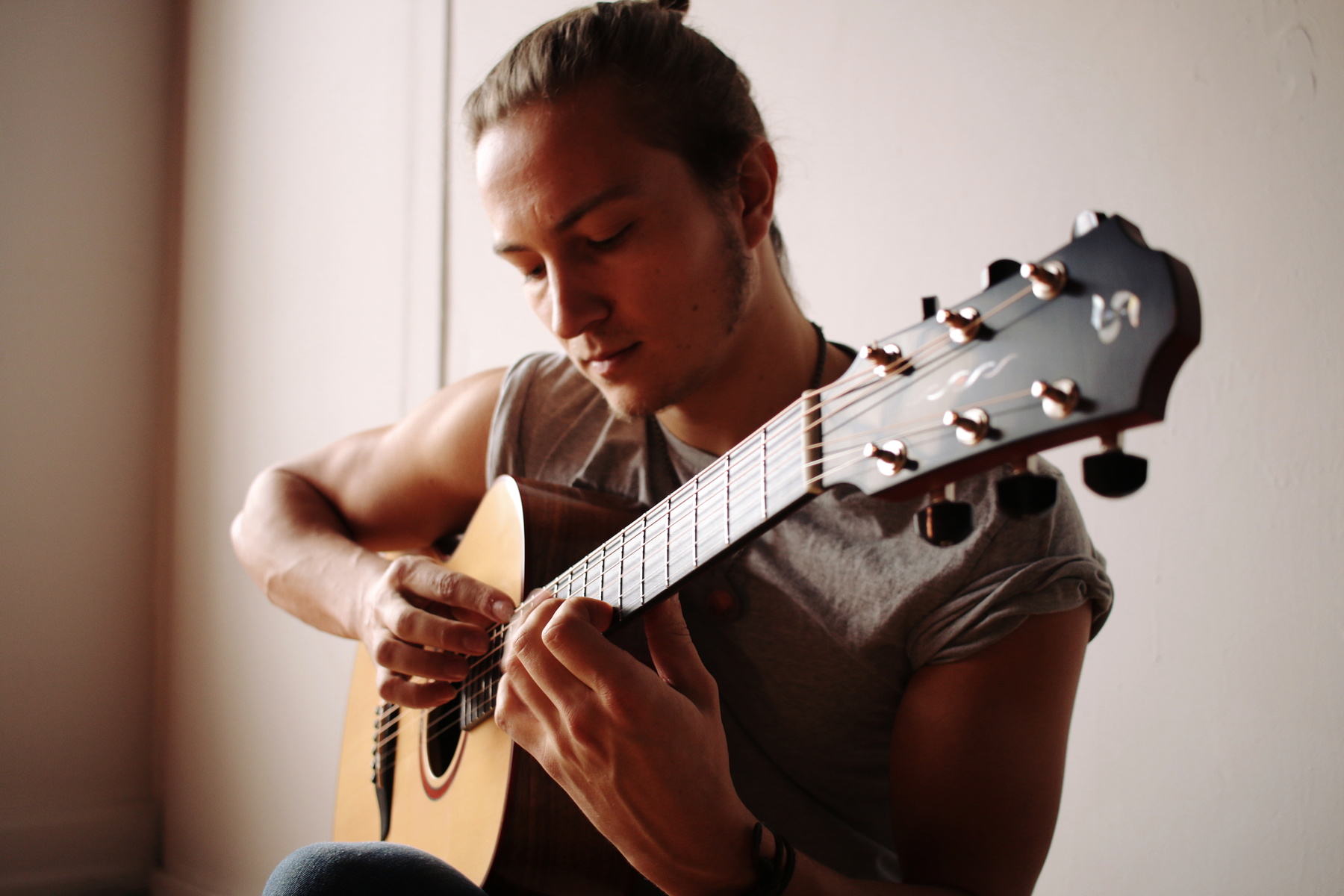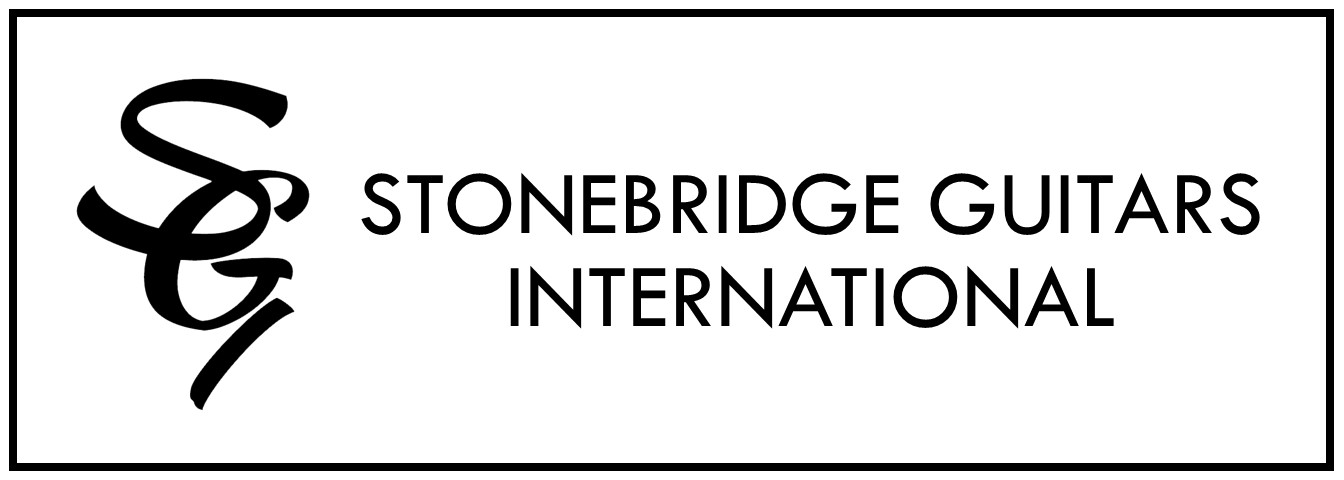Earlier this month, Calum Graham released an exceptional new full length album called Tabula Rasa. It’s a 12 song solo album featuring instrumentals, vocals, and new songs written on the harp guitar with guest performances by Michael Manring and Antoine Dufour.
To preview the new album and order a CD copy please visit: http://calumgraham.com/home

Luke Michielsen: For those who don’t know, what is the meaning of the title Tabula Rasa?
Calum Graham: Tabula rasa means blank slate in latin.
LM: Your album has an amazing ‘sound’ throughout. Instruments and voice are blended seamlessly with lots of reverb and space. How did you and Antoine Dufour decide on which direction to take sound wise?
CG: Well, basically with this album I was hoping to achieve a sound as close to what you would hear at my live show as possible. Other than the odd duet (Farewell with Michael Manring and Point Of Contact, an intro piece with Antoine) – everything is played by me. It’s mostly just with one guitar. I use a loop pedal on Half Your Heart and Phoenix Rising but other than that, we’ve created a listening experience similar to my live shows. Of course it’s touched up a little with background vocals and stuff.
We just wanted to keep it bare bones and make the guitar and vocals shine in that sense. And I happen to have a couple effects pedals that helped add a pad sound throughout. All in all we’ve got a really stripped down acoustic raw sound.
LM: How much did the production techniques influence changes or ideas within your compositions? For example, was the decision to use delay on certain guitar parts something that happened before working with Antoine, or did you decide on the effects during production?
CG: For one, it’s produced by Antoine Dufour, so that’s the main answer. He really knows what he’s doing when it comes to production and getting the right flow of the song, so he had a couple things that he pointed out, a couple suggestions that I took. He had really good things to say and bring to the table.
I’m really happy with how that turned out. A number of effects – delays, reverbs, a couple loops in there. Even a low-fi delay, that just helped change up the sound and make it a little more interesting than the original recording of Pheonix Rising.

CG: Yeah, I’ve been writing vocal material for a couple years but it was all really bad to begin with. I didn’t have much to work with as a singer.
It really took time to develop, though I’d throw in a vocal song at shows here and there and get encouragement from people saying it’s nice to hear you sing with what you do on the guitar.
Then I had a conversation with Don Ross who said, “If there’s one thing I wish I’d done in my career it’s that I wish I’d sung sooner.” Basically what happened is that Don was recognized as an unbelievable guitar player and he started singing too late in his career so people never took him seriously when he sang.
He told me if you can do it sooner and people can grow with you, your vocals and your guitar stuff, then you’re on the right track.
LM: With the previous success of your instrumental guitar pieces, what was behind the decision to start releasing songs with vocals now?
CG: Putting vocal songs out is very new for me. I released the single Burning Up last year to get a feel for how people responded to the style. These are the first six vocal songs that I feel have matured to the point that I wanted to release them on an album.
LM: I noticed variations on the theme of love in the vocal songs. Each seems to reference different aspects of love from dangerous relationships (Wild Woman), communication (Half Your Heart), supporting each other (Lighthouse), mystery/honesty (Ghost) and acceptance (Easy To Love). These songs must be very personal to you. Why did you choose to sing about themes of love?
CG: Love is universal. You know, writing from the relationships that I’ve been in, what I’ve learned about love, the different themes or sides of love just seemed honest to where I’m at as a 24-year-old young man.
Also it’s a comfort zone too. Writing beyond that is a challenge for me. It’s my first vocal album and that’s what made the most sense.
LM: A fan of yours was able to tell that the track Nomad is a tribute to Michael Hedges.
CG: Yeah that was really cool actually. Basically I wrote it as a tribute to Hedges by using that kind of hammer-on/pull-off technique kinda “whacka whacka” thing that he made famous and turned that into a whole song. That’s how the fan was able to pick out the tribute to Hedges.
LM: What has Michael Hedges music meant to you?
CG: Michael’s music is pure inspiration for me. Just listening to his compositional ideas and his brilliance as a real original artist is refreshing to the ear. He inspires me to find that original authenticity in myself, in my playing and really bring that out.
And also to really write from the heart, you know. There are so many guitar players out there that can play a mile a minute and it’s amazing to watch but you know it’s…
With Michael’s music it was all about the feeling and the emotion and I think that’s definitely what he has inspired me to do in my own playing, to tell a story with the music and say it from your heart. That’s it.
LM: The track Farewell features Michael Manring and I know he is a skilled improviser. Were his tracks improvised in the studio? Did you improvise anything on this track?
CG: Michael Manring was working from his studio in California so we were basically doing this back-and-forth over dropbox. He sent me a few different ideas and Antoine and I got in the studio and put together our favourite takes and that was it.
Eventually it would be nice, you know at the Canadian guitar Festival or something, to see him and play that live. For the recording it was all done through remote studios.
LM: Interestingly on the last tune Whiskey Sunrise, I felt a bit of a David Wilcox – Do the Bearcat feel. Very light hearted fun.
CG: That’s funny you pick that up on Whiskey Sunrise [chuckle] . That was a song my dad used to play back in the day a lot. Yeah that song…
LM: Did you think about creating a balance in mood between all the tracks on this album?
CG: Yeah, I was hoping to give a lot of variety on the album. From stripped down raw acoustic guitar to reverb and vocals, background vocals, some looping, percussion, those kind of things. I wanted to have as full of a spectrum as I could while keeping with the idea of being able to perform the album live with one guitar.
The balance in mood was really just thinking about a full show and the full spectrum of emotions that you want to take people through. We wanted to have a little bit of everything.

I was actually really amazed with how good the 24SK sounded in the studio. It had a lot of sustain and it was really well balanced. We were very happy with the result.

Carrie
Omg!!! my favorite Calum!!!